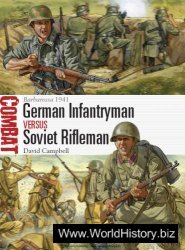As far back as 1596, Spanish arms and ammunition had come to Donegal in support of the O'Neill forces. More came again in 1599 and 1600. But what was most wanted was a Spanish army. Only in early 1601 was the new king, Philip III, able to approve sending 6,000 men to Ireland. O'Neill's ability, a year and a half before after the departure of Essex, to move triumphantly about Leinster and Munster, had helped persuade the Spanish monarch to send him support. Actually, only 4,400 were assembled in Portugal in August and set sail for Ireland. A storm detached four ships with about 600 men. The main force arrived in Kinsale, County Cork, on September 21, although disease and injury left only about 2,500 fit for battle.
However, another player had arrived on the scene who would change the picture dramatically. Sir Charles Blount, Lord Mountjoy, had been appointed lord deputy. He arrived in Ireland in February 1600 with an army of 20,000. His strategy was to avoid general battles, but rather wreak enough destruction so as to inhibit any support among the populace for the O'Neill cause. The regime's determination was manifest in the queen's giving him absolute power, but not the power to grant "the pardon of the archtraitor" (O'Neill). Mountjoy was assisted by the appointment as president of Munster of Sir George Carew, cousin of the land claimant of the 1560s. Within weeks Mountjoy's forces had savagely overwhelmed the Irish in Leinster and Munster, as James FitzThomas, the claimant to be earl of Kildare, and Fineen McCarthy, "McCarthy Mor" were imprisoned in the Tower of London, and the leaders of the O'More sept in Leix were killed. While O'Neill's territory in the north was not overrun, 4,000 soldiers had landed in Derry, and a scorched earth policy of raids by Montjoy into Ulster had resulted in cousins of both O'Neill and O'Donnell capitulating.
The Spanish came to the wrong place when they landed in Kinsale, since the Crown's forces had already overrun Munster. It would have been better for the Irish cause had they come to Ulster. When word came of their landing, Mount-joy immediately undertook to besiege Kinsale by sea and land. He withdrew forces from his Ulster campaign to use against Kinsale. O'Neill and O'Donnell also decided to march immediately south to join forces with the Spanish in what was to be perhaps the most fateful battle in Irish history, for an Irish-Spanish victory would have been followed by even more Spanish forces being sent with all of the ultimate implications that such might have had for the whole of modern European history. The battle took place on Christmas Eve, 1601. There were 6,500 men under O'Neill and O'Donnell besieging a comparable number under Mountjoy, who were besieging the town in which there were about 3,000 Spanish. Tactical miscalculation and bad management resulted in a rout for the Irish and Spanish, as the Irish lost between 1,000 and 2,000. The Spanish under their commander Don Juan del Aquila were allowed to leave for Spain intact. O'Donnell panicked at what had happened and fled immediately to Spain, where he died the following year.
O'Neill let a forced retreat back to Ulster in which he lost great numbers as well. Even in Ulster, where he was ready to make his last stand, joined by Hugh O'Donnell's younger brother, Rory, he suffered numerous defeats, as the virtual seat of the O'Neill's, Dungannon, was overtaken and the O'Neill inauguration chair at Tullahogue was destroyed. Mountjoy's policy of destruction had made O'Neill's retreat into the woods of Ulster impossible, as the starving populace was unable to give sustenance to his forces.
Accordingly, O'Neill began negotiations with Mountjoy, formally submitting on March 30, 1603, at Mellifont under relatively generous terms, but terms that marked the end of the Gaelic order. He remained earl of Tyrone, but now held his lands as a private possession from the Crown rather than as ancestral familial lands. Ulster was divided into nine counties or shires and endowed with all of the appropriate officialdom, including sheriffs. All inhabitants were to be regarded as subjects of the Crown and of no other lord. The same terms were given to Rory O'Donnell, who was made the earl of Tyrconnell. Unknown to O'Neill, Queen Elizabeth had died on March 23, but he was not made aware of that until he had made his formal submission. Obviously, he had assumed that the Scottish king, James, who succeeded his cousin Elizabeth, might have been more generous in his new role as king of England, Scotland, and Ireland. The subsequent record, however, did not bear out such expectations.




 World History
World History









